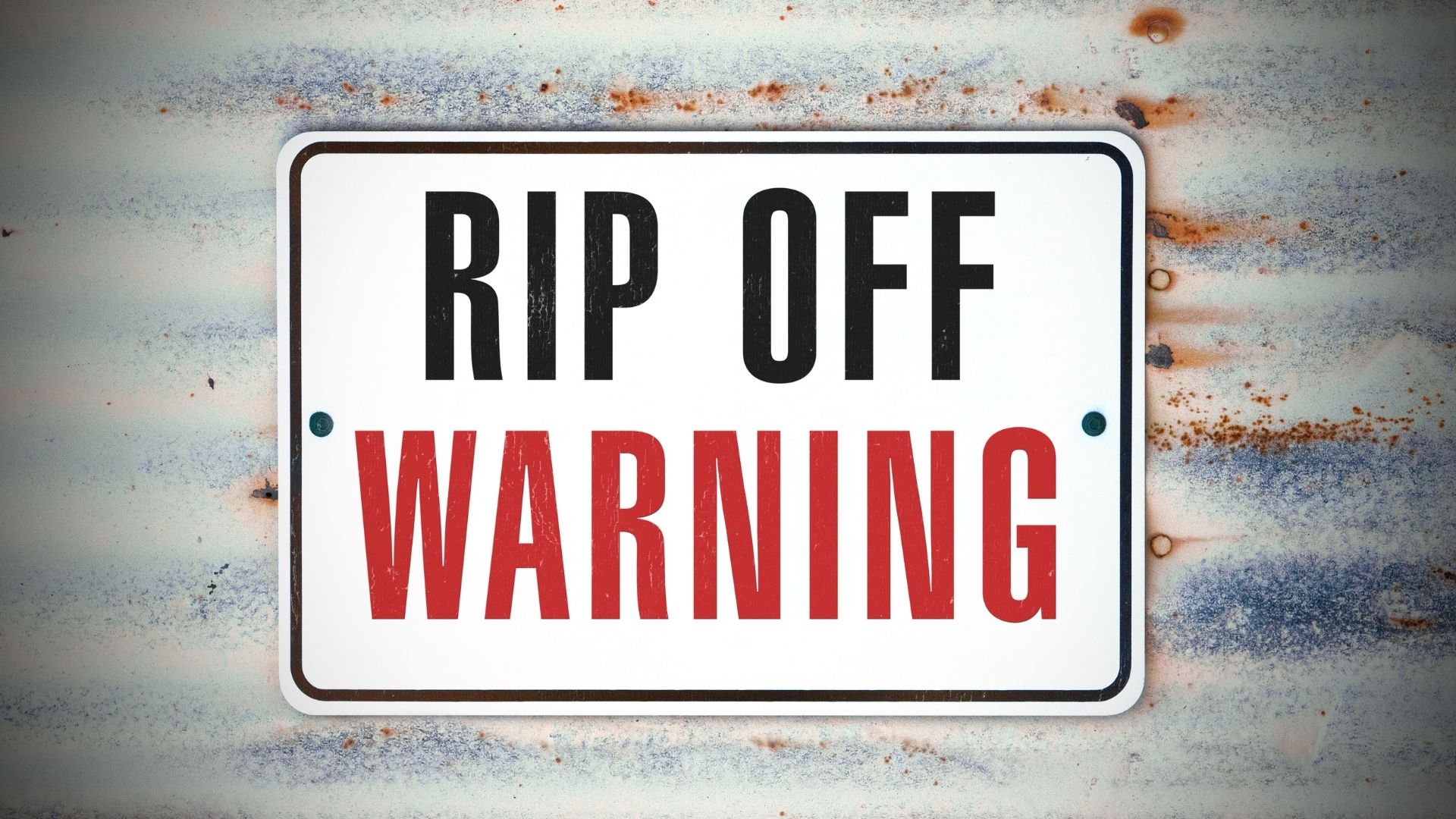On April 1, 2020, James Long sent an open letter to all of the Bishops and Archbishops in the United States regarding their response to the COVID-19 pandemic.
In sum, the US Bishops have (in large part) deprived the Catholic faithful of many of the Sacraments, including the Eucharist. They have done so even when they are exempt from the stay at home orders issued by various states.
There are creative ways to administer the sacraments to the Faithful, but the Bishops have either chosen to not take advantage of these creative initiatives, have directly prohibited creative initiatives, or else they do not truly believe in the Sacramental mission of the Church.
Moreover, many of their mandates and directives are contrary to the Code of Canon Law.
You can download a copy of the Letter here.
Or you can read the letter in its entirely, below.
Post-COVID-19 Lay-Faithful Exhortation
Catholica Fidelium
OF LAYMAN
JAMES A. LONG, ESQ.
TO THE BISHOPS OF THE UNITED STATES OF AMERICA
And to the HOLY FATHER, Bishop of Rome, FRANCIS
Most Reverend Brothers in Christ:
1. As a faithful Catholic, I am deeply concerned about the Church’s response to the COVID-19 pandemic. At a time when the people of God need the Church the most, you have chosen to make the Church irrelevant. What’s worse, you have voluntarily made the Church irrelevant. Many of you have used the various “stay at home” orders issued by the government in response to the COVID-19 pandemic as an excuse to close churches, embargo the eucharist, and deprive the people of God of the Sacraments.
Stay at Home Orders
2. On March 19, 2020, in my home state of California, Governor Gavin Newsom issued executive order N-33-20, directing all California residents to obey State public health directives to stay at home immediately. Governor Newsom’s executive order came in response to the COVID-19 global pandemic. Importantly, the California stay at home order DOES NOT apply to “Essential Critical Infrastructure Workers.”
3. In response, the Bishops of California immediately canceled all public masses. Also, a majority of Bishops canceled many of the Sacraments available to the lay faithful. For example, His Excellence Jose Gomez, Archbishop of the Archdiocese of Los Angeles, closed all churches and encouraged the Faithful to “view” Mass via live-stream online services. Archbishop Gomez also canceled the Sacrament of Confession and directed the Faithful to recite a perfect act of contrition. In addition to the Sacraments of the Eucharist and Reconciliation, Archbishop Gomez also canceled Baptisms, except for “emergencies,” which is left undefined.
4. His Excellence, Salvatore Cordileone, Archbishop of the Archdiocese of San Francisco likewise canceled the public mcelebration of Holy Mass and encouraged the Faithful to “attend” Mass remotely. But unlike Archbishop Gomez, Archbishop Cordileone directed that churches remain “open during the day so that our people may have the solace of prayer in a sacred space, especially before the Blessed Sacrament, during this distressing time.” Additionally, the Sacraments of Baptism and Reconciliation remain available, subject to certain safety and social distancing protocols.
5. As the pandemic grew, other Bishops in the United States similarly restricted the Faithful’s access to the Sacraments. His Eminence, Blase Cardinal Cupich, Archbishop of the Archdiocese of Chicago, prohibited that the Sacraments of the Eucharist and Reconciliation to the Faithful. Moreover, even though ministers to the sick are exempt from the Illinois’ stay at home order, Cardinal Cupich limited the number of priests available to minister to the sick “out of an abundance of caution.” His Eminence, Joseph Cardinal Tobin, Archbishop of the Archdiocese of Newark, prohibited the Sacraments of the Eucharist, Baptism, and Reconciliation to the Faithful. He also shuttered all of the churches in the Archdiocese. His Eminence, Timothy Cardinal Dolan, the Archbishop of the Archdiocese of New York, has prohibited the Eucharist to the Faithful but left the churches open for private prayer. His Eminence, Daniel Cardinal DiNardo, Archbishop of the Archdiocese of Galveston-Huston, prohibited the Eucharist and Baptism to the Faithful but directed that churches remain open and allowed the faithful to participate in the Sacrament of Reconciliation.
6. Other Bishops around the United States have taken similar actions.
7. The greatest concern for me, as a layperson, is the lack of authentic leadership and faithlessness demonstrated by the Bishops of the Catholic Church in the United States. In almost every instance, stay at home orders exempt critical industries and services. Accordingly, people in the foodservice industry, logistics, transportation, healthcare, etc., are all still working during this global pandemic. Yet in the face of the greatest test for the Church in modern history, the Catholic Bishops of the United States have let faithful Catholics down.
8. How often have you preached about the necessity of the Eucharist? How often have you preached about the necessity of Baptism? How often have you preached about the necessity of Reconciliation as the only ordinary means for the forgiveness of sins? Don’t you believe that these services and Sacraments are just as critical to the health of those to whom you minister as, Amazon, Netflix, and the Politicians in Washington?
9. Your actions implicitly concede that you really do not believe that the Sacraments are at all relevant or critical to society. Moreover, your actions demonstrate that cultural icons like Amazon and Netflix are far more relevant than Jesus Christ. It is no wonder why the Church has a hard time retaining its membership when those in its leadership would so quickly surrender the Faithful’s ability to be close to Jesus in the Eucharist. Your actions implicitly concede that commercial enterprise is more important than the Sacramental ministry of the Church. Particularly when there are myriad ways to ensure the effective, compliant, and safe dispensing of the Sacraments to the Faithful.
10. Every diocese struggling with vocations should never wonder why more men are not following God’s call. You have made clear by your actions that the Sacramental nature of the Church is unnecessary. You have made the Faith and the Catholic Church entirely irrelevant and have let more “critical” industries such as Amazon, Netflix, and other cultural influencers to supplanted it. If the Church was ever in a battle for souls against a cultural impetus to turn away from God, you, my dear Most Reverend Brothers in Christ, have completely and totally surrendered the Faithful to its power.
The Necessity of the Eucharist
11. Lumen Gentium reminds us that the Eucharist is the “source and summit of the Christian life.” (Lumen Gentium 11.) The Eucharist “contains the entire spiritual bloom of the Church” and “every ministry of the Church and every work on the apostolate, are tied together with the Eucharist and are directed toward it.” (Presbyterorum Ordinis 5.) The fact that other ministries are continuing, but you deprive the People of God of the Eucharist, is striking. You either DO NOT believe that the existing ministry of the Church is tied together with the Eucharist, or you doubt that the laity have any role or right to partake in the Eucharist.
12. By way of example. I recently asked my parish for permission to bring the Eucharist to my family to distribute communion as we watched Bishop Barnes during a live steam Mass. I am an Extra-Ordinary Minister of Communion and, under normal circumstances, would be allowed to distribute communion to the sick and homebound. I was told that no Eucharist is permitted to any of the Faithful per the directive from Bishop Barnes. I fear that this kind of response is occurring throughout the United States.
13. Even during times of crisis, the Church (to my knowledge) has never so brazenly, and cowardly withdrawn from public life and prohibited the Eucharist to the Faithful. Indeed, the Council of Trent recognized that “[t]he custom of reserving the holy Eucharist in the sacrarium is so ancient, that even the age of the Council of Nicaea recognised that usage. Moreover, as to carrying the sacred Eucharist itself to the sick, and carefully reserving it for this purpose in churches, besides that it is exceedingly conformable to equity and reason, it is also found enjoined in numerous councils, and is a very ancient observance of the Catholic Church. Wherefore, this holy Synod ordains, that this salutary and necessary custom is to be by all means retained.” (Council of Trent, Session XIII, Chapter VI.)
14. Moreover, Code of Canon Law 898 states: “[t]he Christian faithful are to hold the Most Holy Eucharist in highest honor, taking an active part in the celebration of the most august sacrifice, receiving this Sacrament most devoutly and frequently, and worshiping it with the highest adoration. In explaining the doctrine about this Sacrament, pastors of souls are to teach the faithful diligently about this obligation.” (Codex Juris Canonici 898.) Thus, it appears that the response to COVID-19 withholding the Eucharist from the faithful People of God is contrary to the Law of the Church. Canon 912 says: “Any baptized person not prohibited by law can and must be admitted to holy communion.” (Codex Juris Canonici 912.)
15. There is a way to harmonize the social distancing norms promulgated by the United States government and the various state and local governments. If “pastoral necessity urges” lay faithful may carry the Eucharist to the sick so long as the “prescripts of the diocesan bishop are observed.” (Codex Juris Canonici 935.) Furthermore, Canon 939 mandates that “[c]onsecrated hosts in a quantity sufficient for the needs of the faithful are to be kept in a pyx or small vessel; they are to be renewed frequently and the older hosts consumed properly.” (Codex Juris Canonici 939.) Thus, the Code of Canon Law offers a courageous path forward. I believe that “pastoral necessity” urges the use of Extra-Ordinary Ministers of Communion to carry the Eucharist to the Faithful who are, at this extraordinary time, homebound. This kind of solution is entirely consistent with the tradition of the early Church, where public worship was illegal. Justin Martyr writes in 160 AD that “[a]nd when the president has given thanks, and all the people have expressed their assent, those who are called by us deacons give to each of those present to partake of the bread and wine mixed with water over which the thanksgiving was pronounced, and to those who are absent they carry away a portion.” (First Apology of Justin Martyr Ch. 65.) Again in Chapter 67 Justin Martyr writes: “[t]hen we all rise together and pray, and, as we before said, when our prayer is ended, bread and wine and water are brought, and the president in like manner offers prayers and thanksgivings, according to his ability, and the people assent, saying Amen; and there is a distribution to each, and a participation of that over which thanks have been given, and to those who are absent a portion is sent by the deacons.” Thus, from ancient times the Church has consistently prioritized bringing communion to the faithful absent from Holy Mass.
16. Just like in Justin Martyr’s ancient Rome, the State and local authorities have (in some views) made the public celebration of Mass illegal. But unlike the Church during the Apostolic Age, the Bishops of the United States voluntarily withhold the Sacraments from the People of God. The Church itself has a tradition and a law that allows both deacons and authorized laypersons to bring the Eucharist to those who cannot attend Holy Mass, yet through cowardice, lack of faith, or both, you continue to withhold this most precious Sacrament.
On the Closing of Churches
17. “Unless there is a grave reason to the contrary, the church in which the Most Holy Eucharist is reserved is to be open to the faithful for at least some hours every day so that they can pray before the Most Blessed Sacrament.” (Codex Juris Canonici 937.) What, may I ask, is the grave reason to close the churches for the private prayer of the Faithful? Maintaining open Churches is possible. Indeed, some of you, Most Reverend Brothers, have mandated that churches remain open for private reflection and prayer.
18. Moreover, a mandate from the state against public celebrations, which does not apply to churches, is not “grave reason” to prohibit the private reflection and prayer of the faithful in a church. There is no mandate from the state requiring the closure of sacred space. Even if such an order existed, it would be illegal and unenforceable.
On the Prohibition of Reconciliation.
19. Despite the ingenuity of several of your priests demonstrating the efficacious use of “drive-through confession,” which both guarantees the Sacrament and maintains appropriate social distancing, many of you have prohibited the Sacrament of Reconciliation to the Faithful. Indeed, some of you have specifically prohibited these “drive-through confessions.” Instead of formal Reconciliation, you suggest the faithful recite a “Perfect Act of Contrition.” While I do not doubt the efficacious nature of the Act of Contrition or the Church’s tradition of assuring the forgiveness of sins to those who are truly contrite, I see this as another example of failed leadership and lack of creativity.
20. “Christ willed that in her prayer and life and action his whole church should be a sign and instrument of the forgiveness and reconciliation that he acquired for us at the price of his blood.” (CCC ¶ 1442.) The use of the words “sign” and “instrument” imply something public and more than a mere interior “act of contrition.” Indeed, the Code of Canon Law states: “[i]ndividual and integral confession and absolution constitute the only ordinary means by which a member of the faithful conscious of grave sin is reconciled with God and the Church. Only physical or moral impossibility excuses from confession of this type. . .” (Codex Juris Canonici 960.)
21. Even the most strict of stay at home orders only restricts the gathering of 10 or more people in public. Sacramental confession only requires two people, well within the legal guidelines. So, what is the “physical or moral impossibility” that requires you to prohibit the Sacrament of Reconciliation? Indeed, the fact that some of you have policies and procedures in place to allow Sacramental Confession while maintaining legal social distancing guidelines demonstrates that there is no “impossibility.” Thus, Canon 960 remains in effect, and there is no excuse for prohibiting the Sacrament of Reconciliation in this case.
22. Finally, “[a]ll to whom the care of souls has been entrusted in virtue of some function are obliged to make provision so that the confessions of the faithful entrusted to them are heard when they reasonably seek to be heard and that they have the opportunity to approach individual confession on days and at times established for their convenience.” (Codex Juris Canonici 986 § 1.) All priests and bishops are entrusted with the care of souls. (Codex Juris Canonici 757 & 1003 §2.) Therefore, my Most Reverend Brothers in Christ, you are “obliged to make provision so that the confessions of the faithful entrusted to [you] are heard when they reasonably seek to be heard.” (Codex Juris Canonici 986 § 1.)
23. I respectfully exhort you, my dear Brothers in Christ, to make Sacramental Reconciliation available for the lay faithful.
On the Sacraments in General
24. What happened to the spirit of the Church embodied by St. Pope John Paul II, when he courageously defied the communist regime and urged the faithful to “Be Not Afraid?” “Sacred ministers cannot deny the sacraments to those who seek them at appropriate times, are properly disposed, and are not prohibited by law from receiving them.” (Codex Juris Canonici 843 § 1.)
25. If the stay at home orders issued by the federal, state, and local governments apply to churches, it is doubtful whether they are legal or licit under the United States Constitution. But all of these orders specifically exempt critical industries and services. Is the Church not critical? Is its Sacramental service meaningless?
26. The industry and willingness of the Church to adapt to this pandemic is encouraging. But, your response leaves little to be admired. The decision of many of you to withhold sacraments from the lay-faithful demonstrates faithless cowardice contrary to your obligations as pastors.
27. I recognize that I have no power to make any changes to any of these policies. I am bound by Canon Law, just like you. I am not the Ordinary of any Church, and my opinion really does not matter. But like a sheep who sees a wolf approaching, I will alert my shepherd as best I can. I refuse to be eaten in silence.
28. The directive to withdraw the Sacraments from the people is misguided. There is a middle ground. You can find creative solutions to care for your people. There is still time to show the world that the Church is relevant, that it provides critical service, and that its service is necessary to the millions of Catholic and former Catholic Faithful.
Conclusion
29. Lest you think my intent is to merely criticize, let me end with a word of hope.
30. The past few weeks have demonstrated that the Church can use technology to be relevant in the modern world. The live-streaming of Mass, and online communication directly to the faithful is an exceedingly positive sign of growth and a movement of the Holy Spirit in the Church.
31. In particular, I want to congratulate Cardinal Cupich for his initiative to create a monetary fund to help those in need in the Archdiocese of Chicago. I am sure other Bishops are doing this as well, but I only directly saw the ministry in Chicago. These kinds of initiatives make the Church relevant. This is the kind of Church the lay faithful, and those who have left the Church seek – a church at the service of its people, adaptive to modern technology.
32. But, the reaction to withdraw the Sacraments from the People of God, undermines these positive trends and threatens to damage the Church’s relevance for generations.
Respectfully, your humble servant,
James A. Long, Esq.
Given in Eastvale, California, on 1 April, in the year 2020, the thirty-sixth of my Baptism.




